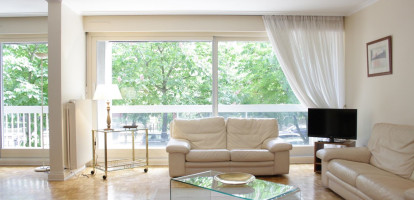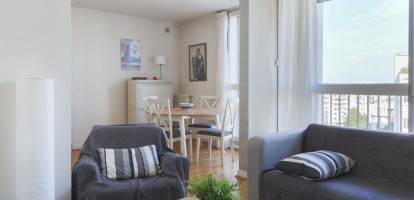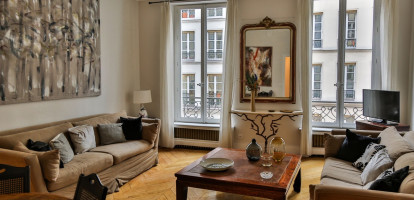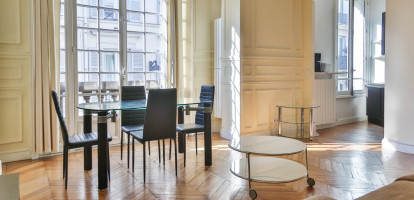Are you ready for your move to Paris? Ensuring you have a reliable electricity supply is crucial for a smooth transition. In this guide, we’ll walk you through the steps to get an electricity contract for your new address while offering tips on how to save energy.
Step-by-Step Guide to Changing Your Electricity Contract
1. Understand the Electricity Contract Process
- Terminate Your Old Contract: This can be done without any charges or notice period. Simply contact your current supplier (like EDF, Engie, or Eni) and provide your client ID.
- Sign a New Contract: Once you've moved, you'll need a new contract tied to your new address. This is necessary because each contract is linked to specific characteristics of the accommodation, including size, heating type, and existing equipment.
2. Select Your Electricity Supplier
Paris offers a variety of electricity suppliers, allowing you to choose the one that best suits your needs. Here are some popular options:
- EDF (Électricité de France): EDF is the historic supplier that plays a crucial role in France's energy production. It offers regulated prices determined by the French government, providing consumers with a stable and predictable cost for their electricity.
- Engie: Formerly known as GDF Suez, Engie is one of the leading alternative energy suppliers in France, offering competitive rates and flexible tariff options.
- Eni: An Italian provider offering various tariff options.
- Total Direct Energy: A subsidiary of Total Group, it is another competitive option in the Paris market, offering attractive pricing and excellent customer service.
3. Compare Tariff Offers
Before signing a new contract, take the opportunity to compare different electricity offers. Consider the following:
- Fixed vs. Variable Rates: Fixed rates (prix fixe) provide stability in your bills, while variable rates can fluctuate with market prices. However, the fixed rates are typically higher than EDF's regulated Tarif Bleu. Additionally, if market energy prices drop, you won't benefit from the lower costs, and you might sometimes pay more than the market price. On the other hand, the variable rate (prix indexé) also comes with risks. In volatile energy markets, prices can spike, resulting in higher consumer electricity bills.
- Green Energy Options: Many suppliers offer 100% renewable energy contracts if you wish to support sustainable energy sources. The green energy option is not necessarily more expensive than the traditional offer. For example, EDF's Green Electric offer is 3% cheaper on average per kWh, excluding VAT, than the Regulated Sale Tariff.
Contact your chosen supplier at least two weeks before your move to ensure a smooth transition. With a Linky meter, the electricity can typically be switched on within 24 hours. However, if your new home does not have a Linky meter, you may need to pay extra (around €41.03) for emergency power, which usually takes 24 to 48 hours to activate. Otherwise, the standard commissioning process can take approximately five working days. Therefore, it is important to consider these timelines when planning your move.
Tips for Saving Energy in Your New Paris Home
1. Choose an Energy-Efficient Property
When searching for a new apartment to rent in Paris, prioritize properties with a good DPE (Energy Performance Diagnosis) rating. Many historical buildings in central Paris can have poor insulation, limiting your options for energy efficiency. Try to avoid rentals rated G and F, as these indicate low energy efficiency. Additionally, consider the heating system; apartments with central heating are often more cost-effective, as heating expenses are typically included in the building maintenance charges, which can result in significant savings on your utility bills and create a more comfortable living space. Last, choose an apartment with double-glazed windows to enhance insulation.
2. Invest in Energy-Efficient Appliances
If you're replacing old appliances, look for energy-efficient models that can help reduce your overall consumption. Consider:
- Induction cooktops instead of traditional electric ones.
- Energy Star-rated appliances that use less energy and water.
3. Adopt New Energy-Saving Habits
Simple daily practices can significantly impact your energy usage. Consider the following tips:
- Turn off lights and electronics when not in use.
- Opt for LED bulbs instead of incandescent ones.
- Maintain a comfortable indoor temperature without overheating.
Moving to Paris is an exciting adventure, and managing your electricity contract doesn’t have to be complicated. By following these steps, you can ensure a smooth transition and start saving energy in your new home.
Photo by Bruno Abatti
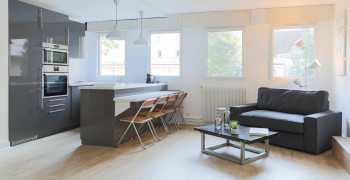


 Français
Français




